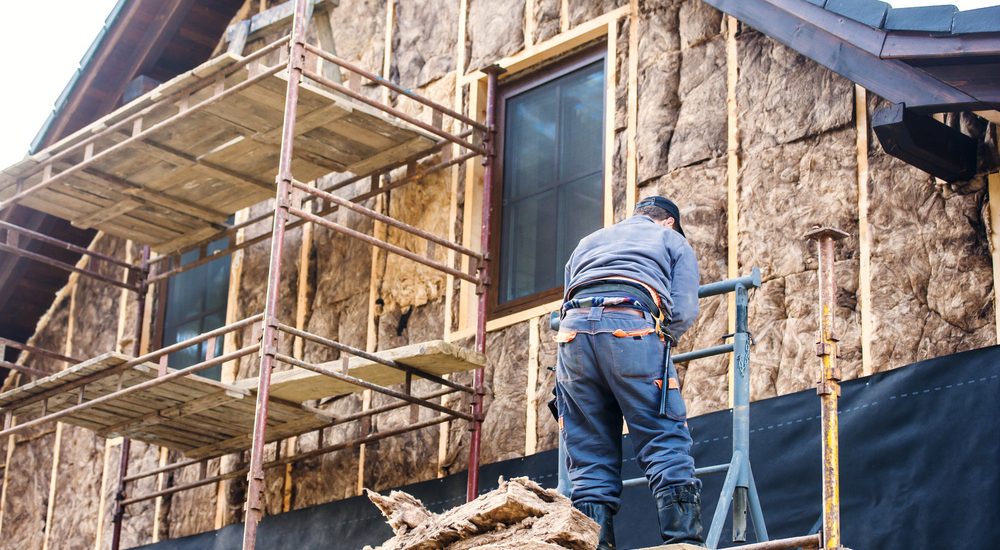The insulation of a home plays an important role in maintaining its internal temperatures. Keeping this temperature at a comfortable level during the winter or summer months is crucial, but insulation doesn’t only serve this purpose; it should also protect you and your loved ones from harmful substances.
Healthy insulation can help filter out all kinds of substances that may cause you and your family harm.
Here’s why insulation is so important and how you can insulate your home effectively.
Prevents damp interiors
Poorly insulated homes are likely to have damp interiors that make ideal conditions for mould and mildew.
When homes are poorly insulated, humidity levels start to increase inside the home and eventually the humid air condenses into moisture, dampening the walls and making them susceptible to mould.
Mould is known to release harmful chemicals into the air which can result in a variety of flu-like symptoms like coughing and itchy noses, and even more serious conditions like asthma attacks.
Aside from mould, damp interiors can act as breeding grounds for harmful bacteria and viruses.
Healthy insulation can effectively prevent high moisture levels and condensation in your home.
Blocks out noise
Noise can be pollution too and it can affect the peace inside your home environment.
Excessive noise can stress you out and it can cause headaches and affect your cognitive abilities.
Insulation can help keep noise from the outside at bay and maintain comfortable noise levels in your home.
Moderates indoor temperature
This is the most basic function of insulation, as the material helps to regulate the temperature in your home.
Poor insulation will leave your home vulnerable to lower internal temperatures during cold weather; this could affect blood circulation and inflame your lungs, possibly leading to infections or respiratory problems.
Keeps out pollutants
Harmful pollutants and allergens from the outside air can enter through your home’s walls if they have not been properly insulated.
These pollutants can affect your lungs, skin, and eyes, and if you have allergies, you may experience immune reactions similar to flu-like symptoms or other illnesses.
Good insulation can help trap dust, pollen, and allergens on their surface and prevent them from getting into your home, improving your indoor air quality.
Finding a healthy insulation option
There are many standard insulation options available, but for a healthy home—especially as regular insulation may contain harmful formaldehyde—it’s best to try using safer, more eco-friendly kinds of insulation.
Sheep’s wool
Sheep’s wool is all-natural and does not have any harmful chemicals that could affect your home.
The best thing about sheep’s wool is that it is made of many, tightly packed fibres that are great at trapping heat and absorbing moisture while never becoming damp itself.
Even if wool insulation does become damp, it naturally generates heat and prevents condensation, making it ideal for keeping mould and mildew at bay.
Cork
Natural cork is a good and safe insulator that does not contain any toxic chemicals that may enter your home.
Cork is not just a good thermal insulator, it can even soundproof walls, thanks to the tightly-packed polyhedral cells they’re made of, and keep out moisture.
Additionally, cork is very chemically resistant, which means that it is unlikely that harmful chemical pollutants from the outside will penetrate it and enter your home.
Mycelium
Mycelium insulation is made from the thread-like roots of mushrooms packed into tight blocks.
Being self-adhesive, it can bond to walls by itself, without having to rely on chemicals that contain harmful volatile organic compounds (VOCs). Mycelium is also a great thermal insulator.
Similar to cork insulators, mycelium is also a good acoustic insulator and can keep excessive noise from the outside at bay.
Make your home safe with healthy insulation
With good insulation, you can ensure that your indoor air quality and temperature will be safe and comfortable for you and your loved ones.
If you need help planning out the insulation for your home and assessing your indoor environment, consider speaking to a building biologist.

